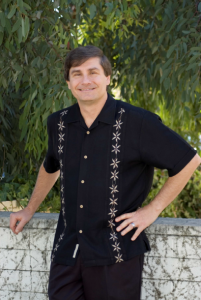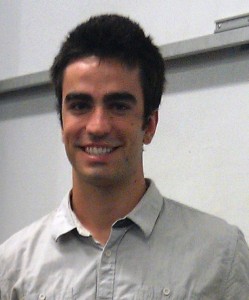by Andy Franz
On April 18, 2015, the Department of Chemistry at the University of the Pacific held its 66th Annual ACS-BBQ for approximately 130 alumni and friends in attendance. The Sacramento Section of the ACS generously supported the event, which featured world-renowned astrophysicist Dr. Alex Filippenko (Professor for astronomy at UC Berkeley, featured on the History Channel “The Universe”) who delivered a fascinating lecture about scientific projects at the Lick Observatory, located east of San Jose.
Dr. Filippenko was a member of two research teams that discovered the increasing rate with which our universe expands; a scientific breakthrough that was credited in 2011 with the Nobel Prize in physics to the leaders of the two research teams. In his lecture, Dr. Filippenko, who developed and runs the Katzman Automatic Imaging Telescope (KAIT), took the audience through techniques used at the Lick Observatory to discover distant planetary systems through Doppler effects, to estimate their dimensions and age, to discover black holes, and to characterize the chemical composition of exploding stars (supernovae) – often supported by students who can control the telescope remotely. The complicated science and the extensive cost associated with such experiments as well as the difficulties with sustaining the Lick observatory financially were presented “down to earth” by Dr. Filippenko. The observatory offers guided tours and serves to educate the public in contemporary space research.
Prior to the presentation, the department honored its outstanding students including the recipients of the Undergraduate Awards from the ACS Analytical Division and from the ACS Organic Division. The recipient of the Organic Award, Vincent Di Massa, is also the department’s outstanding graduating senior and will pursue graduate studies at the University of Illinois Urbana-Champaign.
The department also honored Dr. Silvio Rodriguez whose leadership in the ACS-SEED Program at the University of the Pacific since 1979 has brought many high school students in contact with summer research opportunities in chemistry and related sciences. The new ACS-SEED Program point person at Pacific starting in fall 2015 will be Dr. Qinliang Zhao.


